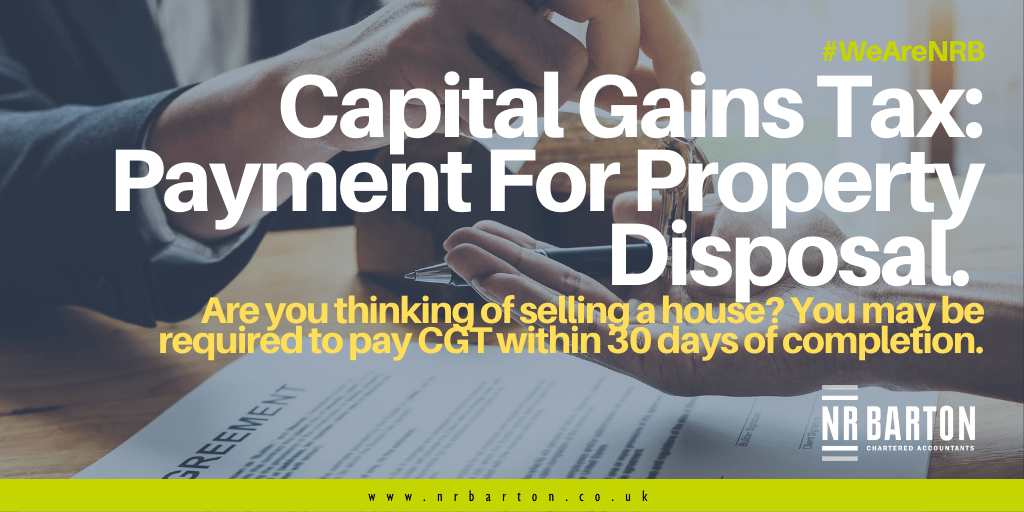Capital Gains Tax (CGT) is a form of taxation which is put on the sale of a non-inventory asset.
If you have sold or disposed of a UK residential property (including part interest in one) after April 2020, you may need to report this and pay Capital Gains Tax (CGT) within 30 days of completion.
- When do I have to pay Capital Gains Tax?
- How do I know if I need to report and pay?
- How do I report Capital Gains?
- Are the requirements different for non-UK residents?
- I am having difficulty paying, what can I do?
- What happens if I don’t report and pay on-time?
- What if I need extra help with Capital Gains Tax?
When do I have to pay Capital Gains Tax?
Situations when you may be required to pay capital gains tax within 30 days include, when you sell or dispose of:
- A property that you have not used as your main home
- A holiday home
- A property which you let out for people to live in
- A property that you’ve inherited and have not used as your main home
How do I know if I need to report and pay?
You will not be required to pay CGT if the property you disposed off was your main home and only used as your private residence. If you have not been living in your home or you have rented it out, then you can check if you need to pay CGT here.
How Do I Report Capital Gains?
- You can file a Self-Assessment Tax return to report your gains in the tax year you disposed of assets
- If you do not usually send a tax return, register for Self-Assessment after the tax year you disposed of your chargeable assets.
After you have sent your tax return, HMRC will tell you how much you owe. The amount of Capital Gains Tax which you pay will depend on your Income Tax Rate.
Are the requirements different for non-UK residents?
In April 2020, the rules also changed for non-UK residents notifying HMRC of a sale or disposal of both UK residential and non-residential property, regardless of whether profit (gain) has been made from the sale or not.
Non-UK residents are still required to notify HMRC of the disposal via the online service but can no longer defer any payment due to their self-assessment tax return.
I am having difficulty paying, what can I do?
If you are struggling to pay your CGT payments, you can head over to GOV.UK and search ‘difficulties paying’ to explore the help and support available to you.
What happens if I don’t report and pay on time?
Failure to report gains or make payment by the 30-day deadline may result in a late filing penalty, late payment interest and you may be subject to a late payment penalty.
What if I need extra help with Capital Gains Tax?
To find out more and to check if the changes to Capital Gains Tax affect you, visit GOV.UK or watch this short YouTube video. As ever, get in touch with the team at NRB if you need further assistance.
[author] [author_image timthumb=’off’]https://i.postimg.cc/mksT3QmG/neil.png[/author_image] [author_info]Neil Whittingham [BA (Hons), FCA, ATT]
About The Author:
Neil qualified as a Chartered Accountant in 2006 moving to NR Barton a year later. In 2014 Neil became a partner in the firm and administers the regulatory and compliance aspects of the firm. If you would like to discover more about Neil, click here. [/author_info] [/author]


